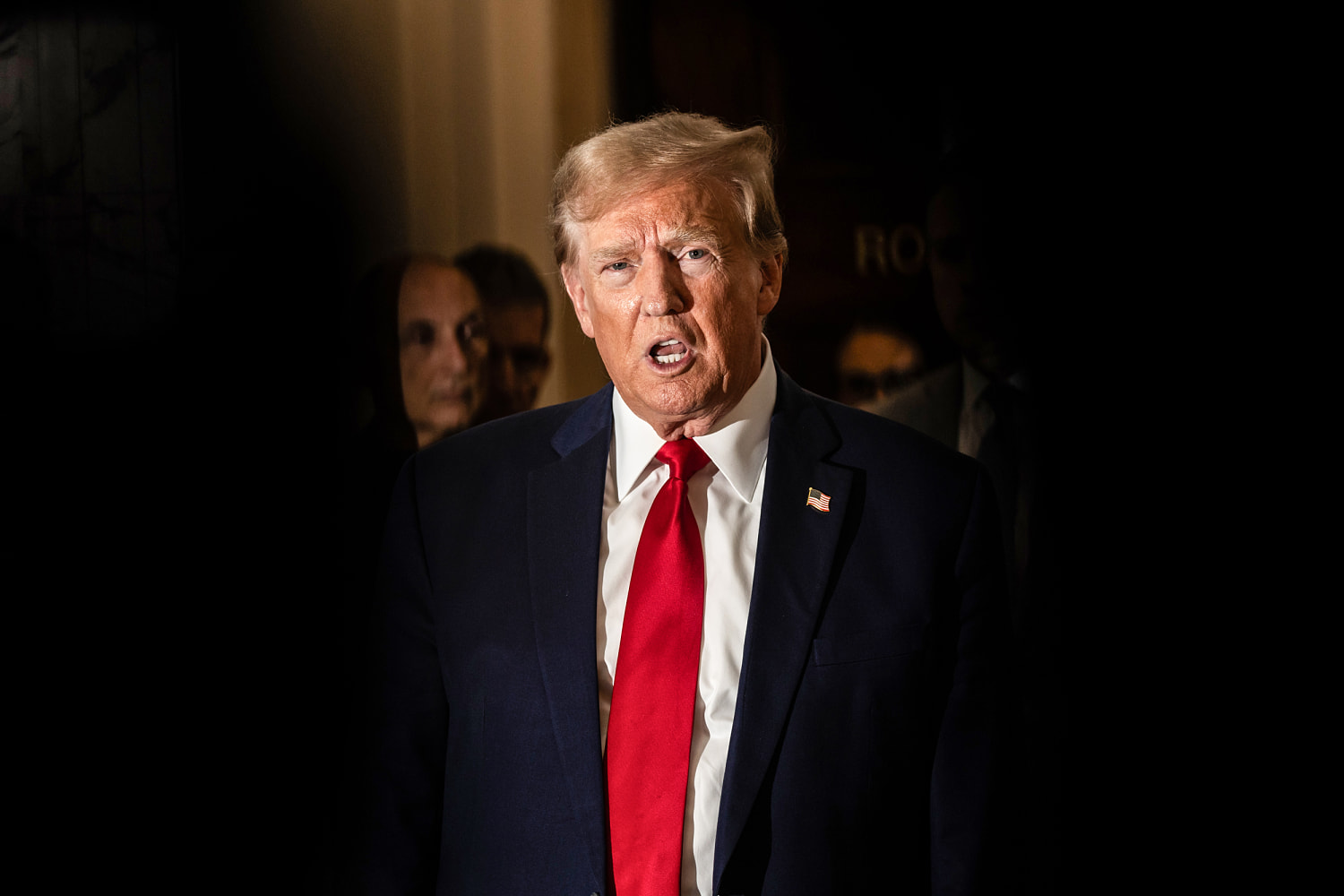[ad_1]

WASHINGTON — A federal appeals court on Tuesday started hearing arguments about whether former President Donald Trump is immune from prosecution for his efforts to overturn the 2020 election results in a chain of events that culminated in the Jan. 6 attack on the Capitol.
Trump arrived at the federal courthouse in Washington, D.C., a few minutes before oral arguments began at 9:30 a.m. The hearing could last for several hours.
The case is one of four criminal prosecutions Trump faces as he fights on multiple legal fronts while remaining the presumptive front-runner for the Republican presidential nomination.
With Trump running for office again, whether the Washington trial originally scheduled for March can take place ahead of the election continues to hang in the balance. Special counsel Jack Smith has asked the court to move quickly, a bid to keep the trial on schedule.
The all-woman three-judge panel of the U.S. Court of Appeals for the District of Columbia Circuit is hearing the case on an expedited schedule, so a ruling could come quickly, possibly in time to allow Trump’s trial to begin as scheduled.
Whatever happens, the losing party is likely to immediately appeal to the Supreme Court. The justices would then face a decision on whether to take up the case and issue their own ruling, potentially also on a fast-tracked basis.
Trump on Monday suggested that if the court does not rule in his favor and he wins the presidential election, he would have President Joe Biden indicted.
Trump’s appeal arises from the four-count indictment in Washington including charges of conspiracy to defraud the United States and conspiracy to obstruct an official proceeding. Trump has pleaded not guilty.
U.S. District Court Judge Tanya Chutkan in December denied Trump’s attempt to dismiss the indictment on presidential immunity and other constitutional grounds. The case is on hold while the appeals process plays out.
Trump’s lawyers argue that he has immunity under the Constitution’s principle of separation of powers because his actions questioning the election results and urging Congress to block certification of Biden’s victory constitute “official acts” while he was serving as president.
They cite in part a 1982 Supreme Court ruling that endorsed presidential immunity from civil lawsuits when the underlying conduct concerns actions within the “outer perimeter” of the president’s official responsibilities.
Smith, who is prosecuting Trump, argues that there is no broad immunity that prevents former presidents from being prosecuted for criminal acts committed while in office.
Furthermore, Trump’s attempt “to use fraudulent means to thwart the transfer of power and remain in office” should not be considered an official act, Smith argues in court papers.
Trump also argues that any prosecution is prohibited because he was impeached and acquitted for the same underlying conduct. He cites in part his constitutional right to avoid multiple prosecutions for the same offense, a concept known as double jeopardy.
Smith countered in his own court papers that the Constitution clearly states that a president who is successfully impeached can also face criminal prosecution. There is nothing in the Constitution to suggest that an unsuccessfully impeached president cannot be charged, he added.
The appeals court panel is comprised of one Republican appointee, Judge Karen Henderson, and two Democratic appointees, Judge Michelle Childs and Judge Florence Pan.
The judges may address an argument not made by Trump or Smith but by the liberal group American Oversight in a friend-of-the-court brief that the appeals court does not have the authority to hear the appeal at this stage. If the court were to embrace that argument, the case could be returned to Chutkan so that the trial could go ahead.
[ad_2]
Source link
